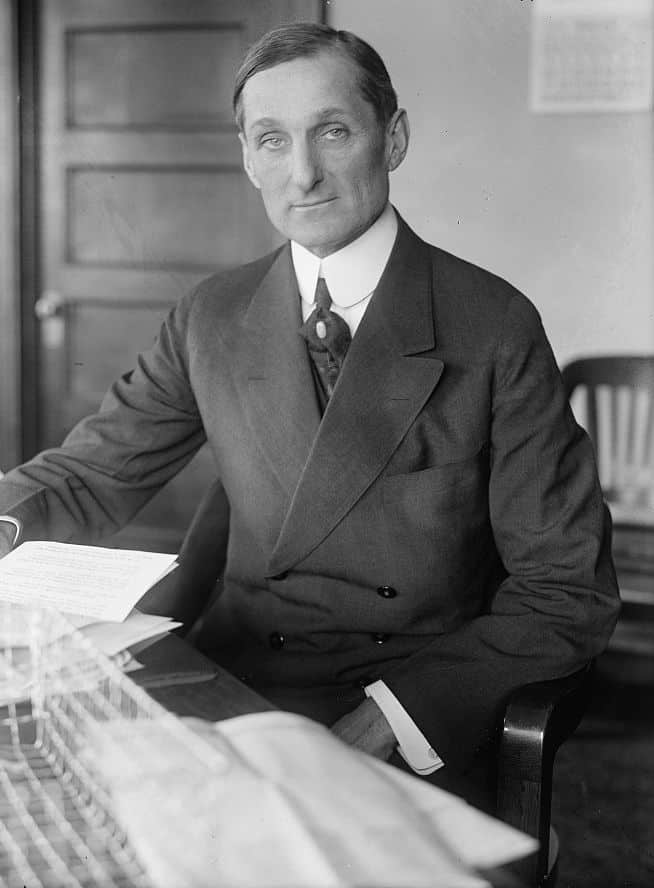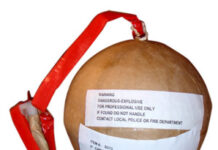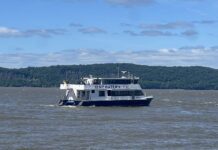
By Mary Hoar, President Emerita, Yonkers Historical Society, recipient of the 2004 Key to History and President Untermyer Performing Arts Council
Monday January 31st
January 31, 1935: Former Stanley Avenue resident Louis Kiss was the third defense witness for Bruno Hauptmann in the Lindberg baby kidnapping trial. Kiss stated he was in the Bronx bakery owned by Christian Fredericksen the night of the crime, and saw Hauptmann talking to his wife at the very time the state claimed Hauptmann was climbing into the Lindbergh nursery, making it impossible for him to have kidnapped the baby in New Jersey.
January 31, 1935: DPW Commissioner Edward Murray announced the appointment of Joseph Lennon as custodian-janitor of City Hall. Lennon was the son of the late John Lennon, long-term superintendent of the building.
Tuesday February 1st
February 1, 1907: Former Palisade Avenue resident William Webster Ellsworth entertained more than 300 Yonkers women at the Women’s Institute with his lecture on the Civil War. His vivid presentation was called “The Guns of Sumter.”
February 1, 1927: Yonkers residents in the Gray Oaks area protested the change of name of the City Tuberculosis Hospital on Saw Mill River Road to Grey Oaks Hospital. The protesters maintained the hospital was not in the Grey Oaks community, but in Nepera Park, and the name would reduce their property value. They did not win. The property was sold to Precision Valve in 1957.
Wednesday, February 2nd
February 2, 1918: Secretary of the Treasury William McAdoo advised Congressman Benjamin Fairchild that the building of the Federal Post Office Building Yonkers would have to wait until after the war. He stated the pressing demands of war made upon the financial, industrial, labor and transportation resources of the country made it necessary to direct them all for war.
February 2, 1938: Katie O’Grady, a resident at St. John’s Riverside Hospital for close to seven months, received a wonderful surprise! The burn victim received a huge basket of beautiful flowers from Pop-Eye the Sailor Man, with a note reminding her to eat her spinach. Pop-Eye, vaudeville performer Harry Foster Welch, was a member of the Manhattan Kiwanis Club as was Captain Harry Warfield, Superintendent of St. John’s Riverside Hospital. The two men became friendly, and Welch, in his Pop-Eye persona often visited the children in the Yonkers hospital.
Thursday February 3rd
February 3, 1920: The Sherman Memorial Dispensary of St. John’s Riverside Hospital was formally opened. Alexander Smith Cochran erected the building as a memorial to his friend, the late Dr. William T. Sherman.
February 3, 1938: Dr. William Crocker, Director of the Boyce Thompson Institute, was award the American Institute’s Gold Medal for Outstanding Achievement in Scientific Research. While accepting this prestigious award, he stated research institutions supported by private money were more efficient and valuable than government laboratories that become “administrative bureaucracies.” Crocker also paid tribute to Colonel William Boyce Thompson, saying he had “no thought of personal returns when he invested $10,000,000 in the Yonkers institute;” as plant research had “no direct relation to the industries in which he was interested.”
Friday, February 4th
February 4, 1925: Bantamweight Jackie Williams from Oak Place knocked out Joe Dundee in his professional debut as a fighter at Columbus Hall; Williams participated in the 1924 Olympics and took the silver medal. Born Salvatore Tripoli, he fought under the name of Jackie Williams because his mother Rose did not approve of boxing.
February 4, 1944: Hot ashes set off a late afternoon two-alarm fire at the Nepperhan Community Center on Monroe Street. Quick work by the Yonkers Fire Department limited damages to $2500. Someone put smoldering ashes in a metal barrel too close to a wooden partition; flames shortly enveloped the cellar. The Center’s basketball game against the Harlem Boys Club had to be moved to New York City.
Saturday, February 5th
February 5, 1945: PFC Peter Schur sent a telegram to sister Mary Surs from San Francisco saying he was on his way home, and would be back in Yonkers in a few days. Schur, listed as missing since Corregidor fell in 1942, was the first Yonkers soldier to return since the recapture of the Philippines. Mary, who lived on Kneeland Avenue, had not received word from the government during that time about his status.
February 5, 1945: USNR Lieutenant Darwin Day of Allison Avenue returned home; He had flown more than 100 combat missions, logging 1300 hours of combat flying. Home on a 30-day leave, he had been in the South Pacific piloting a USNR Black Cat.
A part of the famous 7th Fleet Sea-Air Rescue Squadron in the Philippines, his most notable rescue was locating 26 crewmen from a torpedoed Navy destroyer broken in half by a Japanese aerial torpedo. He also had the distinction of removing a bullet from a Filipino guerilla using his Boy Scout knife while under air attack!
Sunday, February 6th
February 6, 1910: Nearly one thousand men joined the Laymen’s Missionary Movement at a meeting in Philipsburgh Hall. Dr. William Schieffelin, chairman of the New York Cooperating Committee addressed the opening of Yonkers’ chapter of the national movement.
February 6, 1945: Second Lieutenant August Rabe of Hillside Drive received the Air Medal for meritorious achievement in aerial flight over enemy-occupied Europe. Rabe, a P-51 Mustang fighter pilot, previously was a partner of Westchester Private Flyer. A graduate of Yonkers HS, he enlisted in the Royal Canadian Air Force May 1941, and transferred to the US Army Air Force about a year later. He flew with the Fourth Fighter Group of the Eighth Air Force, and had 69 missions over Germany before he was taken a prisoner of war. He was strafing a fuel truck when it blew up, parts crashing into his plane. He lost 40 pounds during his Nazi imprisonment, and said, “If it hadn’t been for the International Red Cross, we probably wouldn’t have survived.”
Questions or comments? Email YonkersHistory1646@gmail.com.
For information on the Yonkers Historical Society, Sherwood House and upcoming events, please visit our website www.yonkershistoricalsociety.org, call 914-961-8940 or email yhsociety@aol.com.





